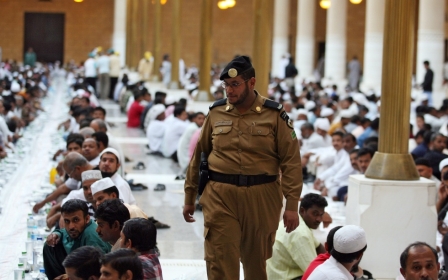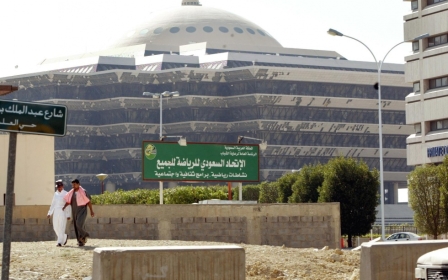Saudi Arabia bans books by pro-Muslim Brotherhood clerics

Authorities in Saudi Arabia have reportedly barred the sale of books by two highly influential thinkers well known for their sympathies to the banned Muslim Brotherhood.
Bookshops are no longer stocking works by Saudi Salman al-Odah and Kuwaiti Tareq al-Suwaidan, according to shop owners who spoke to the London-based daily al-Hayat. They said a notice had been circulated by the Committee for the Promotion of Virtue and Prevention of Vice ordering the books to be removed “immediately”.
Salman al-Odah became well known for his conservative views in Saudi Arabia and has previously been held as a political prisoner. He has become a champion of democracy and civic tolerance since protests swept the Arab world in 2011, criticising Gulf States as playing a counterrevolutionary role.
"The gulf governments are fighting Arab democracy [in Arab Spring countries], because they fear it will come here," he told the New York Times, in a recent interview.
Tareq al-Suwaidan is a leader of the Muslim Brotherhood in Kuwait and is popular throughout the region for his motivational speeches. He was fired last year from his job at a religious television channel owned by Saudi Prince Alwaleed bin Talal for his political affiliations, who said there was no room for “deviant thoughts” at al-Resalah.
Both men have millions of followers on Twitter where they have expressed support for the ousted government of Egypt’s first democratically elected president Mohammed Morsi.
Saudi Arabia branded the Muslim Brotherhood a terrorist organisation on 7 March and has warned imams about discussing politics in their Friday sermons. The kingdom staunchly supported the coup in Egypt and has provided billions of dollars in aid to the military backed authorities.
Suwaidan responded to his work being banned by telling his followers on Twitter they can access his books electronically.
The tweet translates as “my books are available on smart devices as an app called the library of intellectual creation”.
Odah criticised Saudi authorities for violating human rights, in an apparent reference to the decision.
Bookshop owners told al-Hayat the banned books were some of the bestsellers in the country, while some social media users responded critically and speculated it could have negative ramifications within Saudi Arabia.
Stay informed with MEE's newsletters
Sign up to get the latest alerts, insights and analysis, starting with Turkey Unpacked
Middle East Eye delivers independent and unrivalled coverage and analysis of the Middle East, North Africa and beyond. To learn more about republishing this content and the associated fees, please fill out this form. More about MEE can be found here.




